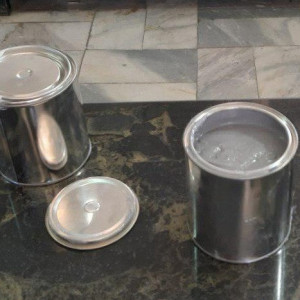| Goharfam industrial Manufacturing Company |

| Registration Date | 4 Jan 2020 |
| Revision Date | 4 Jan 2020 |
| Share |
Automotive Maintenance
Paint SealantHigh viscosity Resist to water, humidity and air Not corrosive Good thermal stability Elastic Easy to apply Proper adhesion to the surface
Due to the presence of seams and the distance between the points of attachment given in the body and inside the car room, the use of PVC based sealer has become popular in the world's automotive factories. The main application of the sealer is to prevent the penetration of water, dust and gas, and to provide resistance to corrosion and sound penetration into the room. Sealers used in the vehicle must be resistant to alkaline and acidic materials after assembly of the body and furnace temperature in the paint room, and to withstand friction and vibration during the vehicle's movement. The sealers are applicable in the connecting panel before the welding, in the pieces that are placed together, external areas with defect and in the interior of the car’s room. The rheological properties and viscosity of a sealer, as well as its lifespan and flexibility, depend on the chemical formula and the weight percentage of the materials used. Today, the use of nanoparticles increases the viscosity of the sealers as well as resistance to shrinkage and results in a more robust strength that can resist vibration and shocks in the car's room. Nanotechnology has been used to improve the rheological properties of the coating in this product.